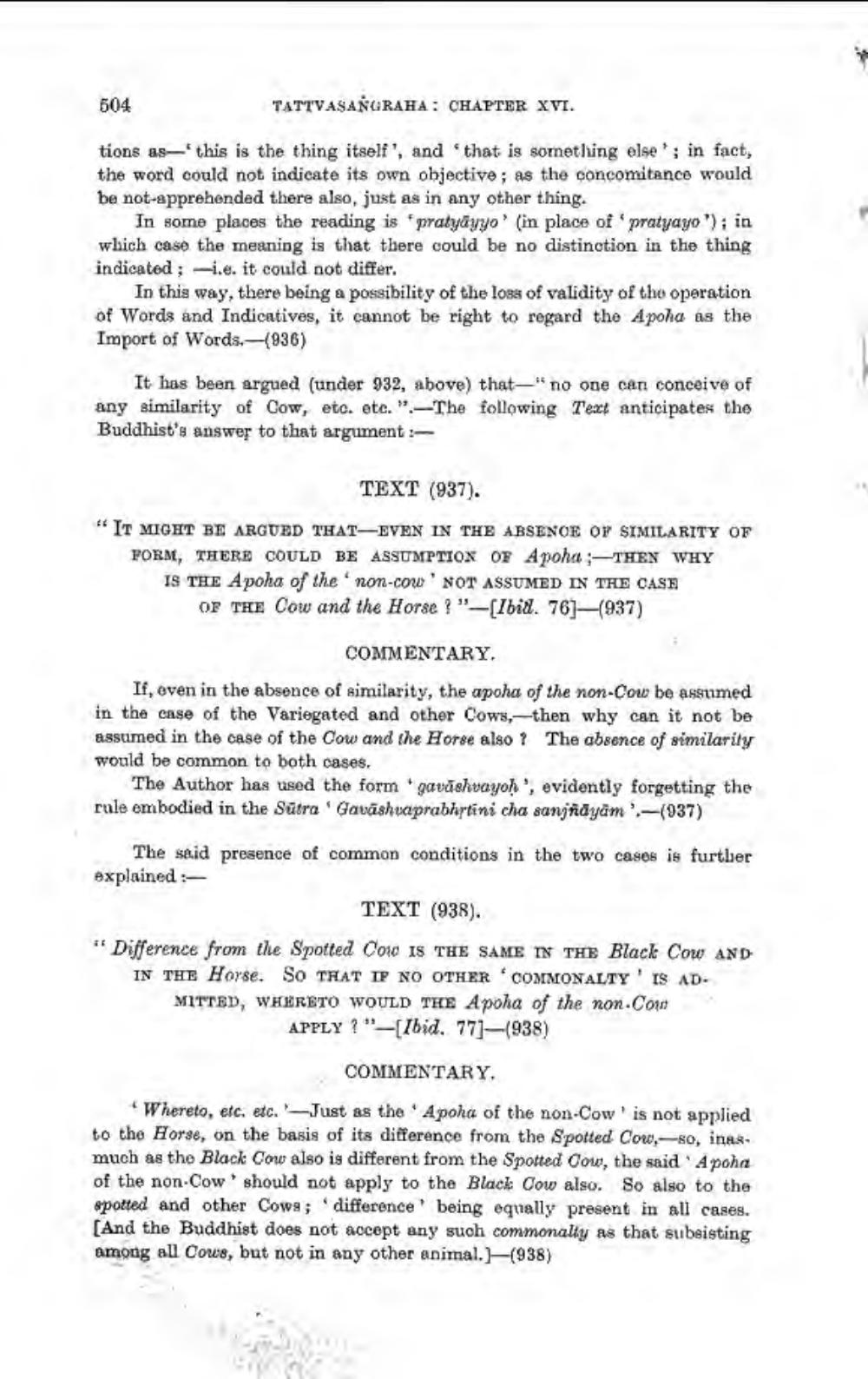________________
504
TATTVASANGRAHA: CHAPTER XVI.
tions as this is the thing itself', and that is something else; in fact, the word could not indicate its own objective; as the concomitance would be not-apprehended there also, just as in any other thing.
In some places the reading is pratyāyyo' (in place of pratyayo"); in which case the meaning is that there could be no distinction in the thing indicated; i.e. it could not differ,
In this way, there being a possibility of the loss of validity of the operation of Words and Indicatives, it cannot be right to regard the Apoha as the Import of Words.-(936)
It has been argued (under 932, above) that—" no one can conceive of any similarity of Cow, etc. etc."-The following Text anticipates the Buddhist's answer to that argument -
TEXT (937). "IT MIGHT BE ARGUED THAT EVEN IN THE ABSENCE OY SIMILARITY OF FORM, THERE COULD BE ASSUMPTIOX OF Apoha:-THEN WHY IS THE Apoha of the non-cow ' NOT ASSUMED IN THE CASH
OF THE Cow and the Horse ? "-[Ibil. 76]—(937)
COMMENTARY.
If, even in the absence of similarity, the apoha of the non-Cow be assumed in the case of the Variegated and other Cows,-then why can it not be assumed in the case of the Cow and the Horse also ? The absence of similarity would be common to both cases.
The Author has used the form gavuskvayoh', evidently forgetting the rule embodied in the Sutra Gavāshraprabhrtini cha sanjñdyam':-(937)
The said presence of common conditions in the two cases is further explained
TEXT (938). "Difference from the Spotted Coto IS THE SAME IN THE Black Cow and IN THE Horse. SO THAT IF NO OTHER COMMONALTY' IS ADMITTED, WHERBTO WOULD THE Apoha of the non.Com
APPLY ?"-[Ibid. 77]—(938)
COMMENTARY
Whereto, etc. etc. Just as the Apoha of the non-Cow' is not applied to the Horse, on the basis of its diference from the Spotted Cow,-80, inas. much as the Black Cow also is different from the Spotted Cow, the said ' A poha of the non-Cow should not apply to the Black Cow also. So also to the spotted and other Cow; difference being equally present in all cases. (And the Buddhist does not accept any such commonally as that subsisting among all Cows, but not in any other animal.)(938)




